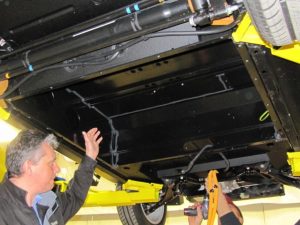Right. maybe. Tesla is limiting the Supercharger charge current on aging car batteries.
"The Tesla community had another small technical/communication controversy this week that was not unlike
the controversy around Tesla’s undisclosed performance restrictions with max power output in March.
We learned this week that the automaker is also limiting the charging rate when Supercharging on vehicles that have accumulated too many DC fast-charge events. Electrek reached out to Tesla to get the official reason behind the change.
Some Tesla owners have been complaining about a slower than usual charge rate at Superchargers on forums and social media for a while now."
Regarding one owner's complaint tesla responded: :According to Tesla engineers, this vehicle has seen significant DC fast charging and is now has permanently restricted DC charging speeds."
The owner's view:"My car has approximately 30,000 miles on it. I regularly use CHADeMo to charge my car, with the occasional Supercharger charge on road trips. On my last road trip, I noticed that my supercharging rate was significantly reduced, usually staying between 75 kw and 90 kw. At first, I thought it was the station, but each Supercharger on my trip had the same behavior. So I bought my car in for service last week."
"I am, to say the least, livid. I am waiting for a call back from management, but presumably, they are going to explain to me that there is nothing they can do. This is akin to the Ludicrous launches being restricted, without warning or any communication from Tesla. But this... is much worse."
https://teslamotorsclub.com/tmc/thr...sla-will-permanently-throttle-charging.90230/
Thus the "fast charge" is getting slower and longer. Article: May 7, 2017,
https://electrek.co/2017/05/07/tesla-limits-supercharging-speed-number-charges/

